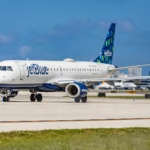The Air Line Pilots Association (ALPA) is once again asserting that there is no US pilot shortage, this time armed with data from the Federal Aviation Administration. The figures show that over 8000 pilots have been awarded their Airline Transport Pilot (ATP) and Multi-Engine Land (MEL) modules in the last year, and that certification is on the rise again after the pandemic. ALPA believes that the pilot shortage is being exaggerated by certain airlines to justify the lowering of safety standards. In particular, one regional airline is requesting an exemption from the 1,500-hour rule.
The Data
New data from the FAA shows that the number of pilots being trained in 2022 already exceeds that of 2019. So far this year, 8,402 trainees have been granted ATP and MEL licences, which already surpasses the 6,664 pilots given licences in 2019. As expected, the figures show a significant decline in pilot certification during the pandemic years.

ALPA goes against the grain regarding assertions about the US pilot shortage. Whilst many say that the new trainees’ pipeline is drying up, ALPA insists that there is a pilot surplus – their data shows that there are currently about 1.5 certificated pilots relative to demand. They assert that the problem doesn’t lie in the lack of pilots but in airlines’ decisions to run an unsustainable service:
“Although we don’t have a pilot shortage, we do have a shortage of airline executives willing to stand by their business decisions to cut air service and be upfront about their intentions to skirt safety rules and hire inexperienced workers for less pay.”
ALPA vs. Republic Airways
In particular, ALPA has taken issue with Republic Airways’ request to be exempted from the 1,500-hour rule. The 1,500-hour rule states that airline pilots must have at least 1,500 hours of flight experience to earn their ATP. Before its introduction in 2013, pilots only required 250 hours of flight time to operate commercial flights.

Earlier this year, the regional carrier Republic Airways filed a request with the FAA to qualify their pilots with only 750 hours of experience. The move led ALPA to indirectly accuse republic of shirking safety laws to save money. ALPA claim that airlines like Republic are using the narrative of a US Pilot Shortage to better their own means.
Whilst halving the mandatory flight hours for pilots may sound ridiculous, Republic is in a unique position, as they train their own pilots from scratch, and only fly Embraer regional jets. The airline is already subject to an exemption allowing them to train some pilots in only 1,000 hours. For a more detailed look, you can check out our piece here.
The 1,500-hour Rule
The 1,500-hour rule has been the subject of much controversy in the aviation world. Increasing the number of necessary flight hours dramatically increases the price and duration of pilot training, potentially deterring would-be trainees. Meanwhile, in other parts of the world, pilots can still qualify with as little as 200 hours.
However, ALPA points out that since the introduction of the rule, passenger fatalities on US commercial flights have reduced by 99.8%, citing data from the National Transportation Safety Board. Laborious and costly as the extra training may be, it’s clearly for the greater good.
What are your thoughts on the US pilot shortage? Let us know in the comments below!









